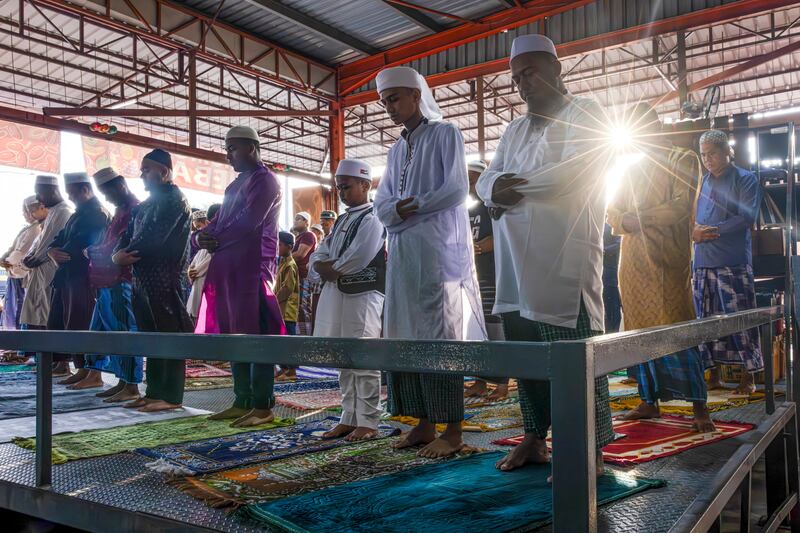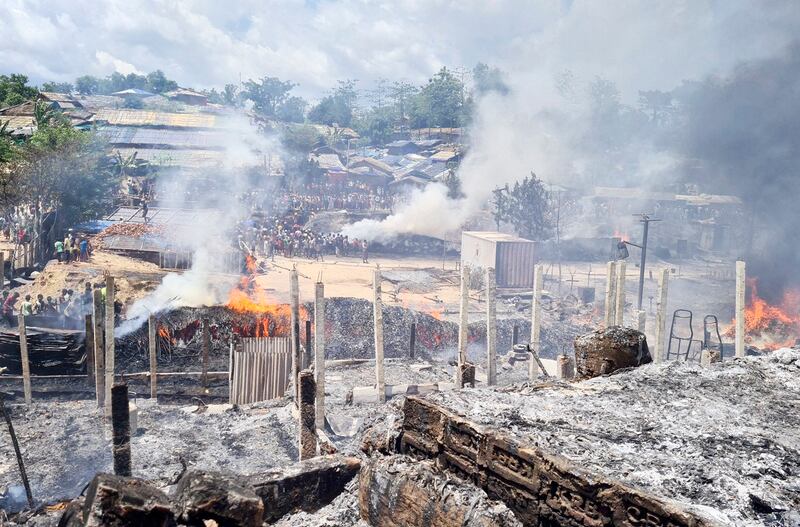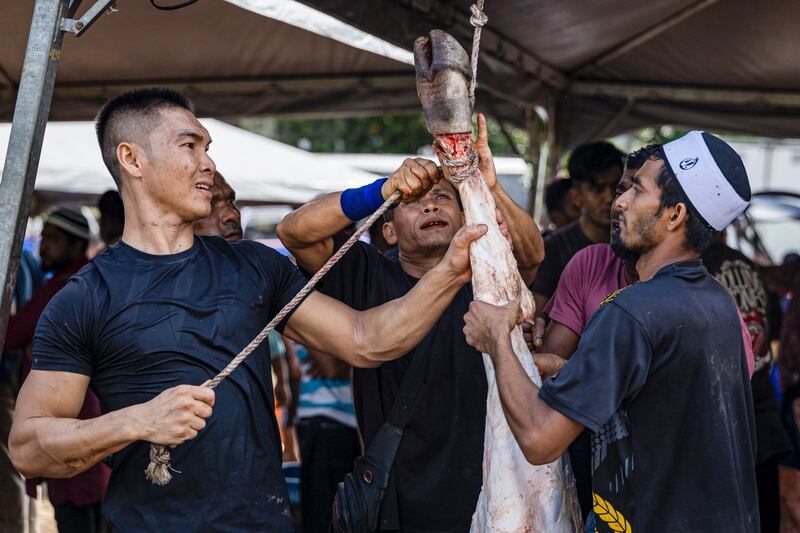The hundreds of thousands of Rohingya refugees forced to flee Myanmar to live in camps in Bangladesh appear no closer to a chance to return home nearly seven years later, with global attention on the humanitarian crisis waning, activists said Wednesday.
Speaking at an event hosted by Refugees International ahead of the seventh anniversary of the Myanmar military's August 2017 atrocities against the Muslim ethnic minority, the overseas Rohingya activists said they feared Rohingya may never again return to Myanmar.
The atrocities, which the United States in 2022 termed a " genocide," included soldiers raping, torturing and killing thousands of Rohingya. Some 740,000 Rohingya then fled into neighboring Bangladesh, bringing the total number there to about 1 million.
Tun Khin, the president of the Burmese Rohingya Organization UK, said that the Rohingya who remain in internally displaced persons, or IDP camps, in Myanmar were still being targeted by the military and were even being killed by anti-junta forces amid the civil war.

“In 2017, the international community was well aware, because people fled to Bangladesh and the media were there, and were able to get that communication to everyone,” Tun Khin said, explaining that news about the atrocities meant resources flowed rapidly to refugees.
But there was now a "total blackout" due to the civil war, he added, even as Rohingya are being forcibly conscripted by Myanmar's military junta to fight against rebel forces opposed to the February 2021 coup.
He said he believed the conscription effort was in part to further stoke ethnic tensions in Rakhine state, and that it was in any case further putting strains on displaced Rohingya families already torn apart.
“No media is paying attention, and this is happening under the pretext of getting rid of the military dictatorship,” he said. “Of course, we want to see this military gotten rid of; we want to rebuild Rakhine state with all the minorities, but Rohingya lives should not be wiped out.”
‘Genocide is not over’
Lucky Karim, a Rohingya refugee who now lives in Illinois, said that she feared for the future of her people, with more and more Rohingya being killed or displaced within Myanmar, while the many refugees in Bangladesh are there effectively as prisoners.

For Rohingya refugees forced to live in the often lawless camps and survive on rations of $10 a month of food administered by the World Food Programme, Karim said, a resolution to their problems seemed as far away now as it did seven years ago when they fled.
“When we all fled to Bangladesh in 2017, the genocide was not over. It was just the beginning,” she said. “People have limited access to transportation, limited access to education, and of course, the rations of food they get from WFP is never enough for every family.”
Related articles
[ US declares Myanmar’s 2017 atrocities against Rohingya a ‘genocide’Opens in new window ]
[ Myanmar's military recruiting Rohingya at displaced campsOpens in new window ]
[ Rohingya activists call for more control of aid moneyOpens in new window ]
She said there needed to be more opportunities for Rohingya to live normalized lives in Bangladesh, given that the opportunity to return to their homes to Myanmar was appearing to become a pipe dream.
“If we talk about solutions, livelihoods is the main one,” she said. “If you provide livelihood opportunities to families, they can make their own money, and it will help them to prevent human trafficking, child forced marriage and everything that is happening in the refugee camps.”
International campaign
There remains some efforts to hold Myanmar accountable and force the junta to allow Rohingya refugees to safely return to their homes.
The Gambia in 2022 brought a genocide case against Myannmar’s government to the International Court of Justice, which the United Kingdom, Canada, the Netherlands, France, Germany, Denmark and the Maldives have since signed on for as external participants.

A federal court in Argentina last year also began hearing testimony against Myanmar's military in a criminal trial for its atrocities brought there under a legal principle called " universal jurisdiction."
But both of those cases have their limitations, the forum heard.
“Many of the survivor community, they really just want to go home, right? They want to go to their homes, and they want to go home as soon as possible. And some of these processes aren't going to really achieve that,” said Arsalan Suleman, a Washington-based lawyer representing The Gambia in its ICJ case against Myanmar.
“The [Argentine] criminal processes are meant to put people in jail, and have criminal accountability,” he said. “That, directly is not going to get some of the people out of the camps and into their homes.
“Similarly for the ICJ case, the Gambia has asked the court to order Myanmar to repatriate the refugees and allow them to go back to their homes, but we are not sure exactly what the court will order,” he said.
With the case still before the court, it could be too little and too late.
For Karim, if Rohingya refugees cannot escape the hellish camps in Bangladesh and return safely to their homes in Myanmar any time soon, the final part of the genocide may be around the corner.
“If we don't have any single member in Rakhine state from our community, from our religion, or from our ethnicity,” she said, “I just fear that Rohingya will be disappeared from this world very soon.”
